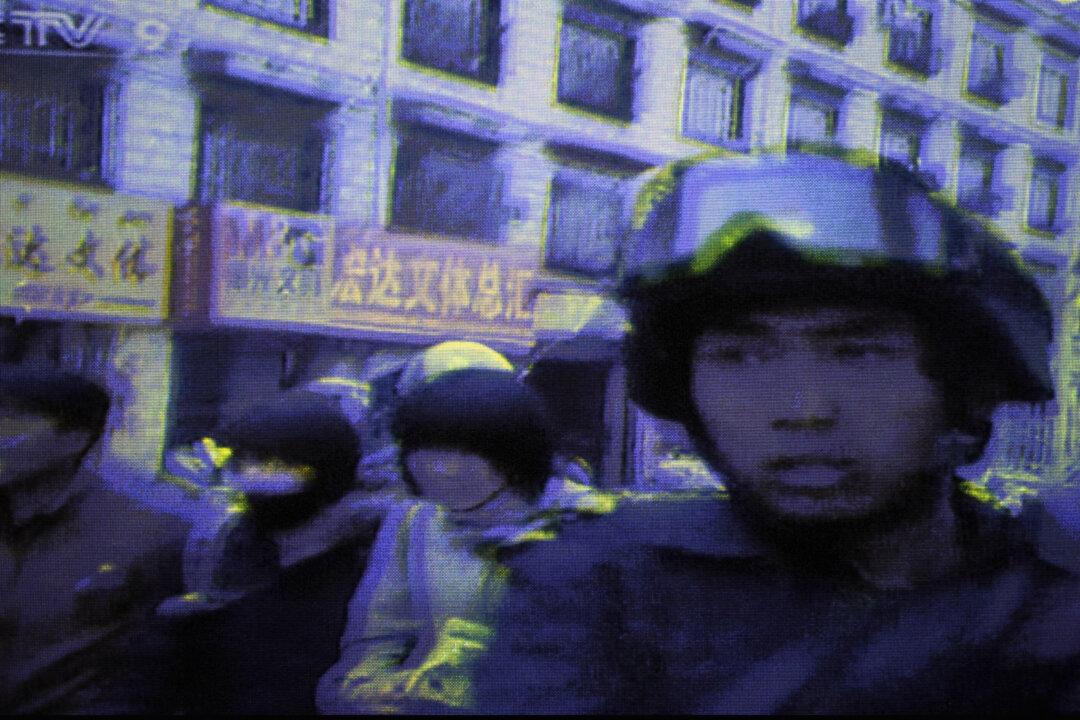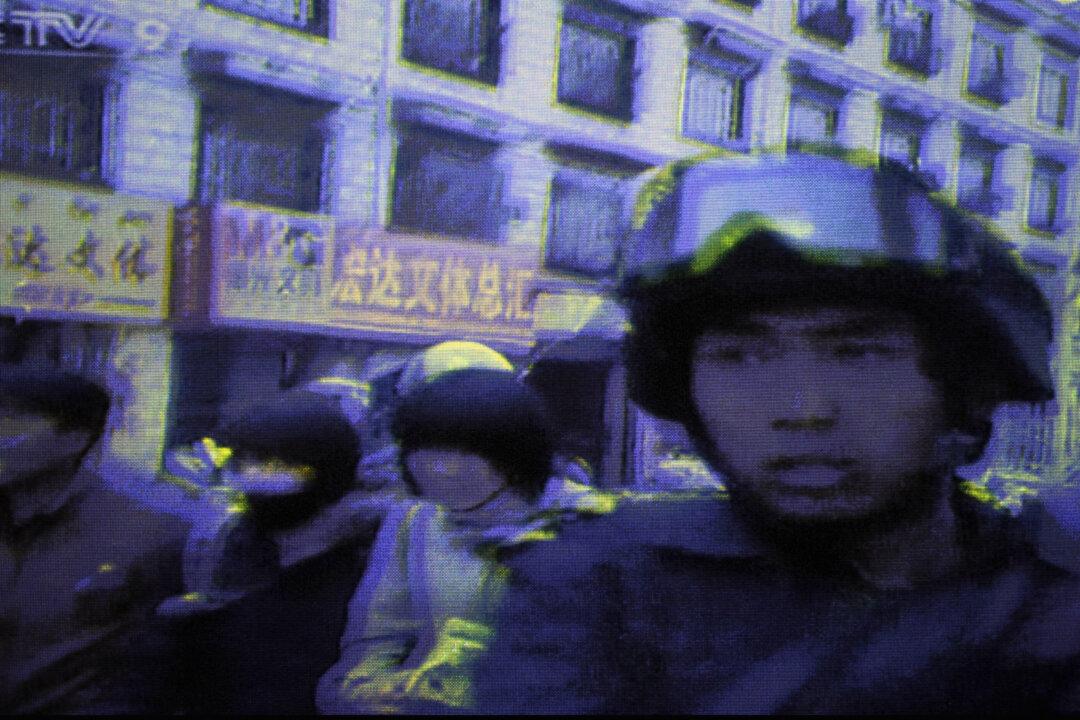A propaganda show is playing at Stanford University, the latest incursion in a silent war being waged in large cities, small rural towns and most especially, college classrooms all across America, by the Chinese Communist Party (CCP), which controls China, the world’s largest nation.
Having spent many years observing the influence of the Chinese government in this country, I can attest that this is a silent war of great magnitude, and a top priority for China, the most brutal and authoritarian regime in the world. China’s goal is to influence, co-opt, corrupt, bribe and usurp hard working American teachers, researchers, academic professionals, ordinary citizens, intellectuals, musicians, journalists, politicians, and administrators at every level.
America’s premier institutions of higher learning—Stanford, Harvard, Yale, UW-Madison—are battlefields in this game of influence, and, so far, China is winning. We are witnessing a national phenomena that is making headlines, as Communist China deploys money, propaganda and manpower to control and manipulate American educators.
As an activist, I have personally witnessed the effect that this epidemic has had on the American student population, and it is indeed frightening. Educators are quietly pressured to relinquish the right to speak openly about human rights, China’s military occupation of Tibet, Chinese politics, anything deemed “sensitive subjects.”
Consider this report from Bloomberg in November 2011: “When a Beijing organization with close ties to China’s government offered Stanford University $4 million to host a Confucius Institute on Chinese language and culture and endow a professorship, it attached one caveat: The professor couldn’t discuss delicate issues like Tibet.‘They said they didn’t want to be embarrassed,’ said Richard Saller, dean of Stanford’s school of humanities and sciences. Stanford refused, citing academic freedom, and Chinese officials backed down, Saller said. The university plans to use the money for a professorship in classical Chinese poetry, far removed from the Tibet dispute.”
Exchanges
America’s most prestigious centers of learning are eagerly signing contracts to open exchanges with the Chinese Ministry of Education, but this exchange is unequal and poisoned by the propaganda and covert machinations of the CCP.
The Chinese-regime-funded Confucius Institutes teach language and culture courses that are strictly controlled by the CCP. American students, even in elementary schools, are being taught Han-chauvinist values, where ethnic minorities, such as Tibetans, Uyghurs, and Mongols, are Sino-fied, and any truthful examination of the sixty-plus years of genocide/repression that has existed is casually brushed aside.
Western Intelligence agencies have always considered these institutes soft power tools of the CCP apparatus, and recently the Canadian Association of University Teachers, which represents over 70,000 academic professionals, has demanded a complete ban on Confucius Institutes within Canada. American schools are sorely behind in efforts to purge themselves of such influences.
Elite Communists at School
As young Americans strive to achieve a higher education in an increasingly difficult economy, many of our campuses have stacked the odds against these students as they compete against other Americans, and a growing and separate class of Chinese elite students, who have flooded American campuses in recent years.
Bloomberg recently published an article “Chinese Students in US Major in Luxury Cars” where it cited a study from Zinch. a consulting firm owned by textbook rental company Chegg that works with prospective Chinese students. “Zinch surveyed 25,000 Chinese students last year and found that 62 percent said they could afford to spend at least $40,000 each year on a college education. “Most schools are recruiting [Chinese] students for whom the difference between a $20,000 and a $40,000 education is a rounding error,” Krommenhoek say
This elite class of princelings and princess-lings who can afford an education in the United States, are the sons and daughters of the highest cadres of the Chinese Communist Party. Xi Jinping, the General Secretary of the CCP, sends his daughter to Harvard University. The son of Bo Xilai, the disgraced Communist Party official, is also studying at Harvard.
American Universities have chosen to fill their classrooms with high-paying Chinese exchange students, rather than enrolling struggling Americans who may bring nothing more than a student loan request.
Some professors have voiced concerns about educating young Chinese Communists, who will use their education to compete against America, but these voices are drowned out by the quest for profits the Chinese regime dangles before university administrators. Moreover, if U.S. teachers speak negatively of China, or even associate with politically sensitive persons, they can be blacklisted from entering the PRC as long as they live, and so most choose to self-censor, in exchange for visas.
If thousands of Tibetan-American students were to apply for a year abroad in their own country through these same ‘exchange’ programs, they would need to attest to their political loyalties at minimum, and most likely never get the chance at all. There remains a great amount of speculation as to what goes on in the interview rooms within the Chinese consulates around the world. Are Tibetans being co-opted or extorted for information while visas are used as leverage? There are more questions than answers.
The expatriate-Tibetan website phayul.com reported on Jan. 29: “The Tibetan minister for information and international relations, Diki Choyyang, has alleged that Chinese Embassy officials intimidate Tibetans in Australia applying for visa to travel to Tibet, reported The Australian.
“Australia is home to some 1000 Tibetans, mostly former political prisoners and their families. Ms. Dicki Choyyang, made the allegation after meetings with members of the Tibetan and Chinese communities in Sydney, Brisbane, Canberra, and Melbourne. “This is a development to which the Australian government and people have to be alerted,” Ms. Choyyang was quoted by The Australian as saying.
“Ms. Choyyang said people from Tibet were routinely asked whether they were members of the Australian Tibetan Association, whether they had participated in any demonstrations while in Australia, and whether they had made contributions to the Central Tibetan Administration based at Dharamsala in northern India.”
Culture of Corruption
Some would like to believe that Chinese exchanges and influence are innocent and beneficial in promoting a well-rounded international education for students, but the reality is starkly different. It has fostered a new culture of corruption, where abundant Chinese money and FDI (foreign direct investment) can buy silence and propaganda gets air time on campuses across the nation.
As Chinese consulate officials are invited to banquets and promotional events aimed at boosting U.S.-China understanding, there exists a dark underbelly of covert soft/hard power operations, many of which include the use of students and youth.
Chinese diplomats use hard cash and intimidation to source overseas students in the monitoring of well known activists, dissidents, Tibetans, Uyghurs, and Chinese students themselves. Chinese student and scholar organizations around the world generally report directly to a local consulate or embassy, and the flow of information between the two is constant.
The PRC spends large amounts of money in directing public opinion in America, drowning out critical protests by exiled refugees and creating an environment of fear, where even political prisoners who have sought asylum in this country, cannot show their face for fear of surveillance and retribution.
My colleague/monk (who will remain unnamed) is a Tibetan asylum seeker from inside Tibet living in America. He is acutely aware of the possibility of Chinese surveillance, and chooses not to protest outside Chinese consulates/embassies unless he covers his face. Examples such as this should push Americans to ask hard questions about what is happening.
Propaganda at Stanford
Stanford University is currently hosting a Pan-Asian Music Festival whose events run through March 1. It is being directly sponsored by the Chinese Ministry of Culture, the Stanford University Confucius Institute, and the Chinese controlled local government in Tibet. It is, at best, a propaganda event aimed at influencing an American audience.
Viewing an act titled “Impression Shambhala,” most audience members would never know that Tibetans are engaged in a life or death struggle against China’s brutal occupying army. Musicians, teachers, students, and intellectuals are imprisoned every day in Tibet, simply for just being Tibetan, or expressing political sentiments critical of the CCP and its occupation.
Student protest leaders in Tibet also face incredibly harsh sentences. For instance, Dorje Wangchuk, 22, and Jampa Gyaltsen were sentenced to four years in prison for leading a mass-protest in the region of Amdo.
The cultural show coming to Stanford features a “Tibetan” dance troupe from Amdo (Qinghai). These dancers are shuttled forcefully from Tibet to the consulate in San Francisco, under constant watch and scrutiny.
They themselves are victims of this arrangement, as they have little to no say in what they are allowed to do. Exit visas are tightly controlled and most Tibetans are vetted before they have left the country.
Even more disturbing; there is a great risk of these dancers being arrested should they while abroad meet with His Holiness the Dalai Lama or even step outside the boundaries the Chinese diplomats have set.
While Stanford keeps its multi-billion dollar endowment secure, opening projects across the Chinese mainland, it has become a proxy for the Chinese government itself. The road Stanford is taking threatens academic freedom.
In the summer of 2013, the Center for Business and Public Sector Ethics in Cambridge in the United Kingdom was scheduled to host a delegation of China’s Gestapo, the Public Security Bureau. It told professors scheduled to take part not to discuss politics or human rights.
A brave professor blew the whistle on the center’s craven appeasement of the CCP. Articles, letters, and phone calls followed, and the Center cancelled the event. We must act swiftly to apply the same pressure on Stanford University to cancel this Chinese propaganda show that obscures the grim truth about their obscene record of genocide, torture and oppression in Tibet.
Within the Tibetan community there exists a sense of frustration at the lack of media coverage of Tibet and the power and reach of Chinese government propaganda which perverts and obscures the ugly truth of China’s reign of terror in Tibet. While frustration is justified, I would like to encourage Tibetans in the West to remember that we can make significant changes if we push the right buttons and pressure the right places.
It is hardly feasible, within a short time, to launch a campaign to overthrow the Chinese regime, but we can stop American city councils from raising bloody red Chinese flags, and we can pressure prestigious universities from being bought and bullied by Beijing. This is within our grasp, and when Tibetans and their supporters apply intense pressure on smaller entities, we get results.
Gabriel Feinstein is a member of the Tibetan National Congress.

